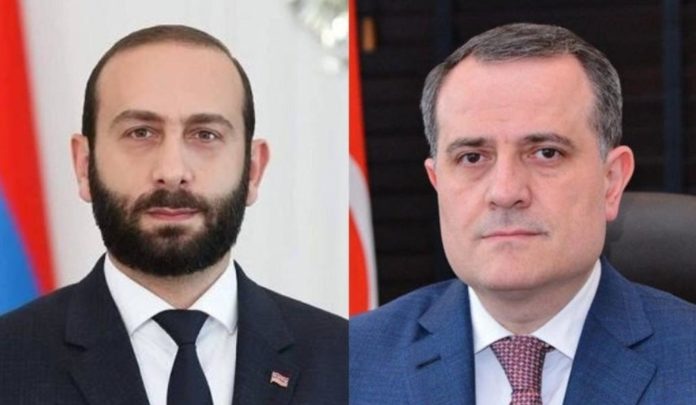By Lusine Musayelian and Astghik Bedevian
YEREVAN (Azatutyun) — More than one month after canceling a US-mediated meeting between the Armenian and Azerbaijani foreign ministers, Baku has proposed that they hold direct talks at the Armenian-Azerbaijani border.
Azerbaijan’s Foreign Minister Jeyhun Bayramov revealed the proposal at a news conference on December 28. He did not say whether the Armenian side has already responded to it. There was no immediate reaction to Bayramov’s statement from Yerevan.
US Secretary of State Antony Blinken was scheduled to host Bayramov and his Armenian counterpart Ararat Mirzoyan in Washington on November 20 for further negotiations on a peace treaty between the two South Caucasus nations. Baku canceled the meeting in protest against what it called pro-Armenian statements made by James O’Brien, the US assistant secretary of state for Europe and Eurasia.
O’Brien visited Baku earlier this month in what appears to have been a failed bid to convince the Azerbaijani leadership to reschedule the canceled meeting. A senior aide to Azerbaijani President Ilham Aliyev said on December 19 that Washington must reconsider its “one-sided approach” to the Armenian-Azerbaijani conflict before it can mediate more peace talks.
Aliyev withdrew from talks with Armenian Prime Minister Nikol Pashinyan which the European Union had planned to host in October. The EU too has been accused by Baku of pro-Armenian bias. Armenian leaders have suggested that Aliyev is simply dragging his feet on the peace treaty in hopes of clinching more Armenian concessions.










